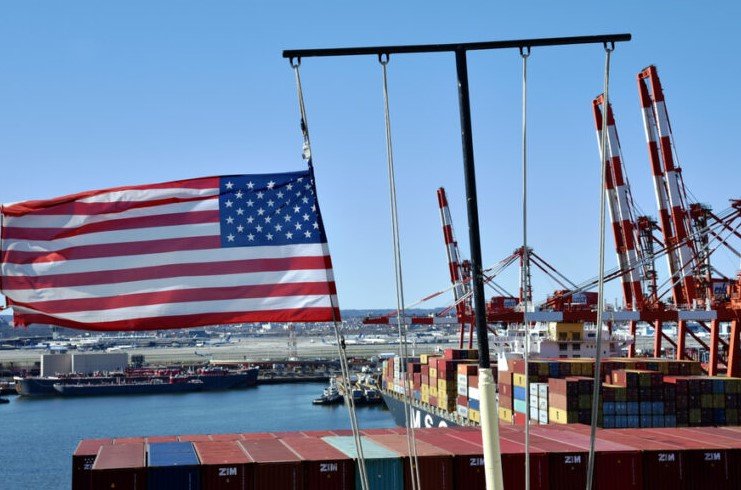In the latest twist in global trade dynamics, China has taken aim at the UK’s newly signed trade deal with the United States, accusing Britain of aligning too closely with Washington. Meanwhile, in the UK’s corporate world, Aviva’s £3.7bn acquisition of Direct Line faces scrutiny from competition regulators, adding to the ongoing mix of challenges in both international trade and the business landscape.
China’s Growing Concerns Over UK-US Trade Agreement
Beijing is making its dissatisfaction with the UK-US trade agreement clear, arguing that the deal could harm Chinese interests. Signed last week, the agreement offers Britain modest relief from US tariffs on car and steel exports. However, this relief comes at a steep price—Britain must adhere to strict American security standards, including the scrutiny of supply chains and ownership structures. These stipulations have sparked concerns that the deal is specifically designed to target Chinese involvement in UK supply chains.
Chinese officials were quick to respond, with a spokesperson from China’s foreign ministry stating that the agreement could compel British companies to sever ties with Chinese suppliers. In the eyes of Beijing, this aligns the UK too closely with the US at the expense of its broader economic interests. According to the Chinese government, the deal undermines a fundamental principle of international trade: that agreements should not harm or target third countries.
This criticism is not without basis. China has long viewed the US’s economic policies through a lens of competition and protectionism. The UK’s alignment with the US on this issue could be seen as a strategic move to strengthen its post-Brexit trade ties with Washington, but it risks alienating Beijing, one of the world’s largest economies.

Aviva’s £3.7bn Acquisition Faces Competition Scrutiny
On the corporate front, Aviva’s £3.7bn acquisition of Direct Line is now under the microscope of UK competition regulators. The deal, which was expected to reshape the UK insurance landscape, could face hurdles as the Competition and Markets Authority (CMA) reviews whether the merger would stifle competition in the sector.
This scrutiny comes at a time when the insurance market in the UK is already experiencing considerable challenges. With more consumers shopping around for better deals and insurance costs fluctuating, the merger between two major players in the industry raises questions about how it will impact market competition. Regulatory bodies are concerned that combining these two companies could create an imbalance that would disadvantage consumers by limiting choice and increasing premiums.
The CMA is not alone in raising concerns. Analysts have warned that this deal could lead to a more consolidated insurance market, where fewer companies control a greater share of the market. This would make it harder for smaller insurers to compete, potentially limiting innovation and driving up costs for consumers in the long term.
Aviva has defended the acquisition, arguing that it would allow the company to streamline operations and provide better value to customers. However, the CMA’s inquiry underscores the growing emphasis on maintaining competitive balance in major industries, particularly when large mergers could have widespread economic implications.
The UK’s Foreign Investment Challenges
Meanwhile, new reports show that the UK continues to face significant challenges in attracting foreign investment. For the fifth consecutive year, the UK’s foreign investment has fallen behind France, a stark contrast to the country’s aspirations to become a global business hub post-Brexit.
This shift in investment patterns comes at a time when the UK government has made various efforts to improve its standing in global markets, including trade deals like the UK-US agreement. But despite these efforts, foreign investors are still wary of the uncertainties tied to the post-Brexit environment, including regulatory changes and shifting trade relationships.
As European shares remain mixed and the Chinese stock market experiences a significant rally driven by tech stocks, the UK’s position in the global investment race appears to be slipping. Investment flows are crucial for driving economic growth, and the UK’s struggle to attract significant foreign capital could have long-term repercussions for its economy.
Burberry’s Global Restructuring and the Future of UK Jobs
The UK job market also faces a tough road ahead. Fashion giant Burberry recently announced plans to cut 1,700 jobs globally as part of a major restructuring initiative. The decision to downsize reflects the broader pressures faced by UK-based companies as they adapt to changing market conditions, including the lingering effects of the pandemic and shifts in consumer behavior.
The layoffs at Burberry follow a wider trend of job reductions across various sectors in the UK. While the company is focusing on restructuring its global operations, the news is a reminder of the growing challenges in the job market. With unemployment figures fluctuating and businesses still grappling with post-pandemic recovery, job security remains a top concern for many workers.
This development also highlights the difficult balance companies must strike between maintaining profitability and protecting jobs. Burberry’s move to streamline its operations and focus on more profitable areas is likely to be seen as a necessary step, but it comes with the unfortunate consequence of job losses, which will undoubtedly have a ripple effect across the economy.
The Growing Influence of Chinese Tech
As global markets continue to adjust to shifting alliances and trade policies, the growing influence of Chinese tech companies remains a point of contention. The Chinese tech sector has proven to be remarkably resilient, and it continues to play a significant role in the global economy, despite the regulatory and political challenges it faces.
The UK’s increasing reliance on technology imports, particularly from China, has raised alarms within the government. Amid growing fears of cyber espionage and data security breaches, the UK has faced increasing pressure to reconsider its stance on Chinese tech firms. The new UK-US trade agreement may be viewed as part of this broader effort to curb Chinese influence in the UK’s supply chains and ensure greater control over data security.








